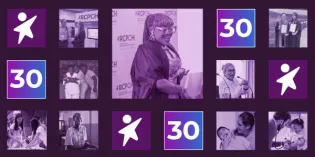Important notices
Please note, the reporting instructions below are for cases seen up until March 2026. For reporting instructions from previous months please view the download section at the foot of this web page.
When reporting a case, please keep details of patients for reference.
Please inform the BPSU office of retirements or circumstances affecting your ability to return the orange e-card. Complete the report card by ticking "nothing to report" or indicating the number of cases of the listed conditions seen in the month specified.
1. Rapid-onset obesity with hypoventilation, hypothalamic dysfunction and autonomic dysregulation (ROHHAD)
Reporting instructions:
Please report all existing and new cases you have seen in the last month fulfilling this case definition of ROHHAD (in the UK and Republic of Ireland) not previously notified.
Case definition for ROHHAD:
Please report any patients under the age of 16 years with:
i) Rapid onset of obesity in childhood after 12 months of age in a previously healthy child
a. with evidence of crossing three major centile lines for weight within a 12-month period (e.g. 9th to 75th centile)
b. or family photographic evidence of highly significant weight gain in 12 months, in cases with no baseline weight measurement.
AND
ii) Sleep-disordered breathing requiring overnight respiratory support
Exclusion, any of:
- Evidence of structural abnormality of hypothalamic-pituitary axis on MRI
- Congenital structural brain abnormality e.g., septo-optic dysplasia
- Acquired brain injury e.g., craniopharyngioma
- Other causes identified for obesity e.g., Prader Willi syndrome, monogenic obesity
- PHOX2B variant associated with congenital central hypoventilation syndrome







